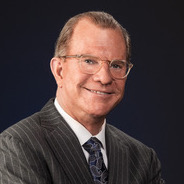5 minutes
Post-program reports, choosing events wisely, developing officers and certifying governance knowledge are all key.
Board members are exploring the credit union seminar circuit—from Hawaii to the Caribbean to Canada—for board development. What has been the follow-up action plan at your credit union for directors attending such programs? If your members’ money sends director packing to a conference, the least owed to them is a return on their investment—something tangible. What changes has your credit union made to governance in the last year, based upon the training board members received? Answering this question might be a good board self-assessment exercise.
Translate Learning Into Action
Here’s my biased opinion: It’s impossible to attend a learning event and not pick up something of potential impact. The best boards formalize the learning-to-action connection for board members both by aligning conferences they attend to board member learning needs and expecting a detailed report upon their return.
Directors should expect to submit a modest written report to the other board members following any learning experience. In general, the best reports capture the following elements: What track/session did you attend? What was the gist of the content? What are the strategic implications for our credit union? Do we need to explore a particular topic you learned about in greater detail?
A written report can easily be placed in the consent agenda, with any follow-up the board deems appropriate built into future agendas. The head of the governance committee should track report filing and be the voice of “action follow-up” if topics arise that the board should pursue.
Additionally, the CEO should file a similar report for all the conferences/seminars he or she attends. Oral discussion is only important if the CEO sees action that should occur. Most reports can be placed in the consent agenda.
Raise the Bar on Conference Choices
In addition to reporting back about what they learn, best-practice boards put considerable thought into the approval of board travel and participation in conferences and seminars. While exotic locations are always popular, they may not provide the right learning for a particular board member. Experienced board members need to get more strategic content; newer board members may need more credit union literacy and governance process content.
Some boards have a governance committee that works with directors to “align learning” by coaching the board member in choosing appropriate conferences and seminars. This requires board members to define their learning needs for the year and governance committees to be proactive in matching them with opportunities. The old approach of “anything is helpful” and “that looks like a fun venue” may not be the best investment in today’s environment.
I like to advise experienced directors to get outside the credit union circle of conferences. What else is out there on the board’s topics of interest—such as customer experience, digital strategy, innovation, risk management, organizational culture and governance? Interaction with board members and executives from other industries can provide immense perspective back in the credit union board room. I also suggest this for credit union CEOs.
Pay Attention to Officer Development
Officer development is one of the most overlooked areas of credit union board education. There is still an assumption a board member with business competencies will automatically be a good chair. Not so fast. The chair’s role involves a much higher level of political savvy, facilitation, communication and strategic leadership than any other board seat.
I see this first hand in the CUES’ Board Chair Development Seminar each year. Since CUES’ initial roll out of this program, current chairs are returning with their chair-elects to begin the chair development process earlier and as a team. This is a good sign that boards are becoming more alert to the critical role of the chair.
Today’s chair might benefit from a refresh on such topics as facilitating an inclusive meeting, dealing with an obstinate/bully board member, maintaining a strategic focus, dealing with conflict and disagreement, and communication with the CEO. If your board and officers are now being compensated, you owe it to the membership to set higher board performance expectations.
Have Directors Self-Certify Knowledge of Governance Principles
Having board members certified in governance principles is emerging in governance literature as a best practice. In health care, this involves specific courses designed just for directors; in the for-profit sector, the National Academy of Corporate Directors has an extensive seminar to certify governance competency. I have helped other boards with a “self-certification” process for board nominees.
A step toward this important concept is asking a potential board member candidate to self-certify that they are familiar with specified governance literature. To do this, a board only has to identify a book or two and possibly an additional article on governance—not the history of credit unions or finance—that they believe will help a new board member step into full governance stride. The candidate then self-certifies they have read the background materials.
This small step is critical for credit unions that frequently elect board members without any prior governance experience. While certainly not a governance competency guarantee, the exposure is likely to raise the governance literacy of new board members. I find it surprising how many credit union board members have not read a single governance text.
Since the economic downturn and banking crisis of 2008, the state of board governance has become a hot topic across all governing domains. Greater scrutiny is being given to board makeup, self-assessment, governance performance and of course individual contributions now that credit union boards are being compensated. A simple discussion of some of the ideas mentioned here might be your board’s self-assessment exercise next year. Best wishes for enhanced learning.
Les Wallace, Ph.D., is president of Signature Resources Inc. and author of Principles of 21st Century Governance and co-author of A Legacy of 21st Century Leadership. Hear him speak at CUES’ Board Chair Development Seminar, Sept. 11-12 in Vancouver, British Columbia. Contact him at les@signatureresources.com.





